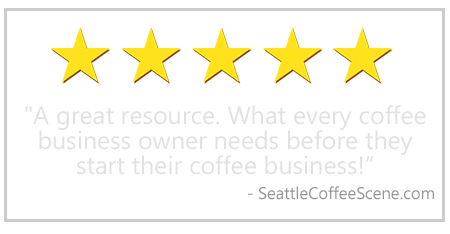How to Start a Coffee Shop in Europe

How to Start a Coffee Shop in Europe
Is Europe The Right Place to Start a Coffee Shop?
If you look at the map, you'll find out that countries that consume the most coffee per capita are located in Europe. Countries like Norway, Sweden, Iceland, Denmark, and the Netherlands consume about 20 lbs. of coffee per capita yearly!
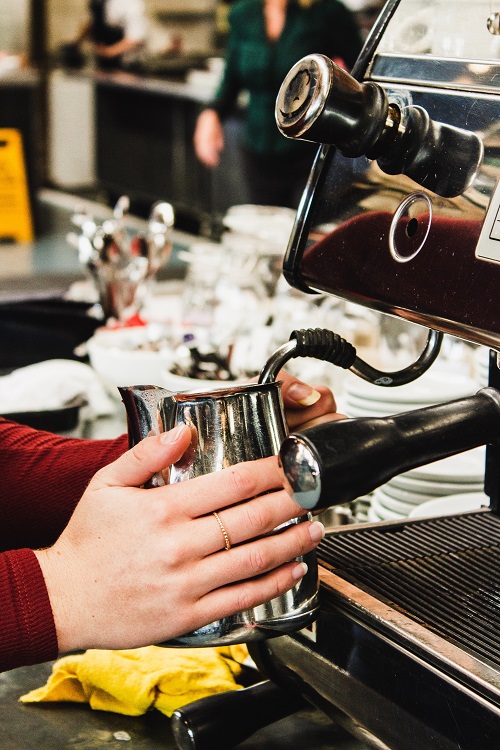 Yet the coffee consumption championship goes to Finland, where the average person drinks 26 lbs. of coffee yearly!
Yet the coffee consumption championship goes to Finland, where the average person drinks 26 lbs. of coffee yearly!
If you have traveled to these countries, you know that their coffee is truly delicious – but pricey. However, there's still a growing demand for good specialty coffee in these countries and their neighbors. This means that starting a coffee shop in Europe provides excellent profit potential.
If you traveled to Southern European countries like Portugal, Spain, or even Italy – which arguably considers itself the world's capital of coffee – you know that they typically use harsh Robusta beans. In my opinion, their coffee doesn't taste the same as in the US or Northern Europe.
The market for good coffee in these countries is vast. This means your geography extends even further if you get the itch to start a coffee shop in Europe.
Central and Eastern European countries like Romania, the Czech Republic, Poland, or the Baltic States (Lithuania, Latvia, Estonia) might seem like relatively small markets with specialty coffee shops opening every month.
Just about 15 years ago, these countries quickly adopted the American coffee culture focused on specialty coffee. Despite their market size, with a solid coffee shop concept and a well-written coffee shop business plan, you can successfully start a coffee shop in Europe.
European Coffee Consumption Is Strong
The latest figures from the International Coffee Organization show that Europe consumes 34% of the world's coffee. The most populated EU country, Germany, consumes 26% of all coffee worldwide. Surprisingly, Germany's stats are higher than those of North and Latin America, which account for only 19% of coffee consumed worldwide.
The demand for quality coffee makes Europe the biggest green coffee importer. The number of coffee roasters is growing rapidly, too. So, the growing coffee market in the EU makes Europe an ideal place to open a coffee shop.
Other good news for those who want to start a coffee shop in Europe is that most laws and regulations and the tax system and hiring practices are almost identical in all states across the European Union.
All this makes the idea of starting a coffee shop in Europe intriguing and possible!
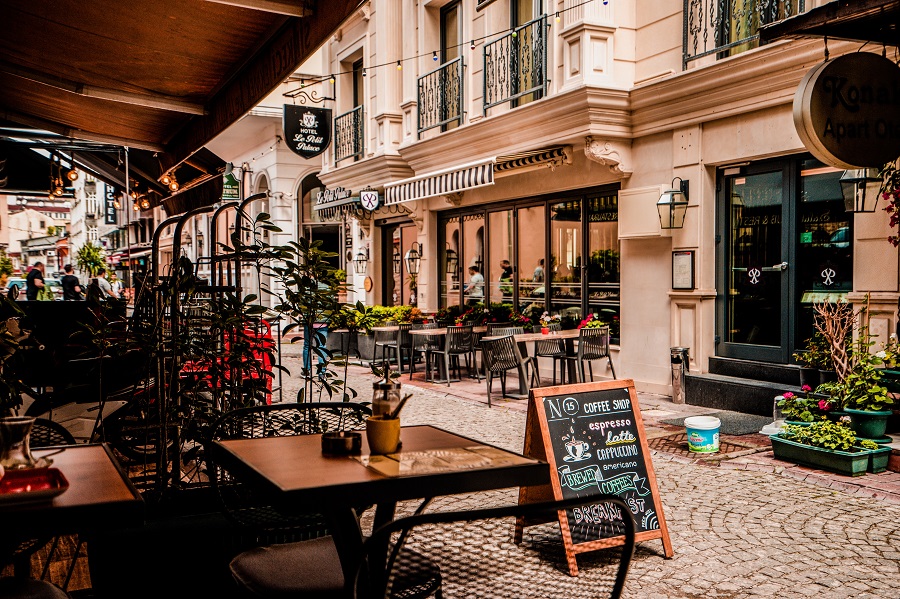
How do you open a coffee shop in Europe?
Where to Start?
If you want to start a coffee shop in Europe, you have to answer some essential questions:
- Is opening a coffee shop the right thing for me?
- Do I have the skills to open a coffee shop?
- Where do I start?
If you are excited to start your coffee venture in Europe, you should have an accurate picture of what it will take to succeed. This means doing in-depth research before getting into the retail coffee business. As you do your research, you will find the pros and cons of starting a coffee shop.
Let's mention some of them here.
The pros of starting a coffee shop in Europe:
- Potentially very high profits
- High demand market
- Freedom to be your own boss
- Do what you love
- Uplift your local community
However, you need to be aware of some disadvantages to starting a coffee shop in Europe.
The cons of starting a coffee shop in Europe.
- High labor costs
- Fierce competition
- Managerial challenges
- Time-consuming business
- High taxes and cumbersome labor laws
Starting a coffee shop in Europe with clarity of what is in front of you should be a priority. The more research and planning you do before you start your coffee shop, the better off you will be.
Nevertheless, if you believe you have a passion for coffee and want to share your love for coffee with the world, starting a coffee business may be an excellent opportunity in Europe.
While you may benefit from various skills to start a coffee shop, it's interesting to note that people come to coffee from all backgrounds. These include former students, business people, state employees, and homemakers – all of them open successful coffee shop businesses daily all over Europe and beyond.
There are some personal traits that you want to have to be a good coffee shop owner.
You want to be:
- Flexible
- Ambitious
- Diligent
- Meticulous
- Able to lead and delegate
- Sociable
- Good at basic math
If you possess some of these qualities and have the time and finances to dedicate to your business, then you are ready to start!
But where do you start?
This is a common question that every aspiring coffee shop owner has. This article will lead you through the most important steps of opening a European coffee shop. Additionally, explore our coffee business blog for in-depth coffee business articles.
How to Start a Coffee Shop in Europe
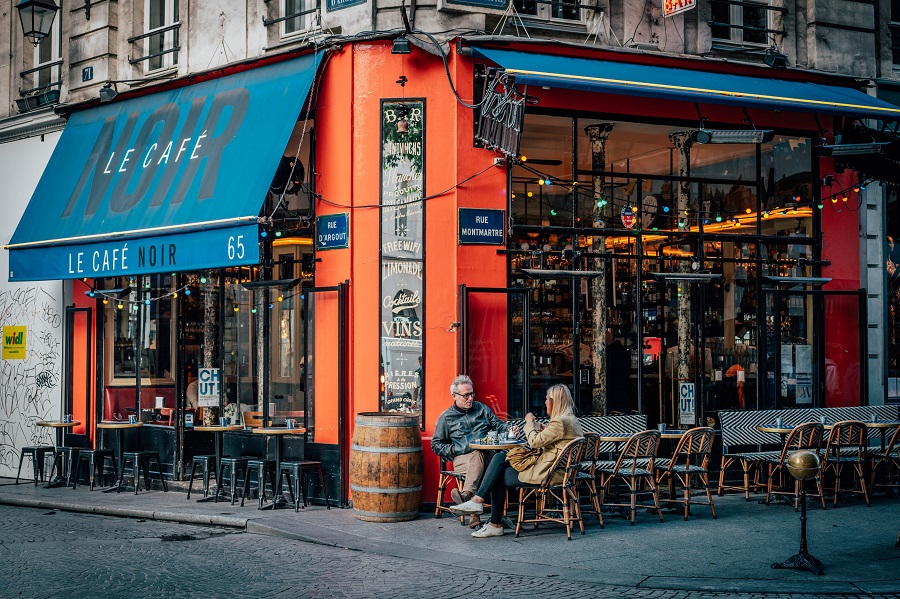
How do you start a coffee shop in Europe?
1. Develop Your Coffee Shop Concept
Every coffee shop business starts from a concept. Sit and write down your ideas about your ideal coffee shop: where it's located, what type of customers you serve, what coffee you brew, what's your name and logo, what furniture and ambiance you have in your coffee shop, etc.
Think about what type of coffee business you want. Will it be a coffee franchise, a coffee kiosk, a mobile coffee business on wheels, or a full-fledged coffee shop? This will significantly impact all your other decisions.
Your coffee shop concept ties all the above elements together with one universal idea – for example, an eco-friendly coffee shop, a modern high-tech coffee shop, or a music-themed coffee shop.
Your coffee shop can be anything that you like or anything trendy right now. Having a basic idea of what type of coffee business you want will help you develop your menu, look for coffee shop property to lease, and buy your layout and furniture.
Brainstorm Your Coffee Business
If you already have a few ideas, give yourself an hour to write down everything that comes to mind. Have fun! Write down the craziest of ideas – they can turn out to be the most successful ones!
Have a brainstorming session with your business partner or loved one if you have one. If you feel stuck with some ideas, visit the most popular coffee shops in your town and see what you like and don't enjoy about their business.
As you move forward with your coffee shop business planning, some of your initial ideas will transform to fit into your budget or space requirements. However, getting your ideas down on paper right now will separate you from the dreamers into doers.
Trending Articles on Coffee Shop Startups:
| Coffee Shop Ideas & Concepts | Coffee Shop Budget and Planning |
|---|---|
| 50 Coffee Shop Ideas & Concepts | 7 Ways to Open a Coffee Shop with No Money |
| Low-Cost Coffee Shop Ideas | Open a Coffee Shop Bookstore |
| How to Open a Drive-Thru Coffee Stand | How Much do Coffee Shop Owners Make? |
Starting a Coffee Shop in Europe (Continued)
2. Write Your Coffee Shop Business Plan
Your coffee shop business plan is the essential document that helps you thoroughly plan and execute your business operation.
A coffee shop business plan covers:
- Mission and vision
- Concept
- Business structure
- Startup costs
- Budget
- Financial projections
- Action plan
- Menu and equipment
- Marketing
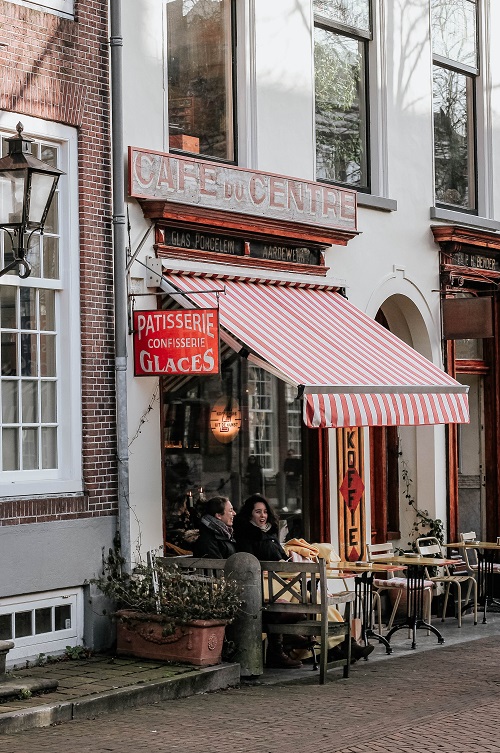 As you can see, your coffee shop business plan is a comprehensive document that encompasses all aspects of your business. A good coffee shop business plan keeps you organized and saves you money because it includes your financial and budgetary estimates.
As you can see, your coffee shop business plan is a comprehensive document that encompasses all aspects of your business. A good coffee shop business plan keeps you organized and saves you money because it includes your financial and budgetary estimates.
Coffee Shop Financials
Depending on your coffee shop concept, opening a coffee shop in Europe can cost between €20.000 and € 100.000.
The business plan will help you determine the total cost of your coffee shop. This will allow you to calculate your funding mix – how much personal money you can invest and how much money you will borrow from your relatives, banks, or silent investors. When calculating your break-even point, you will have a preliminary date of reaching your profitability and giving your loans back.
Your coffee shop business plan will be necessary for all the stakeholders: your investors, banks, property managers, state institutions, and you as a coffee shop owner.
Every decent business partner will want to ensure you are serious about your coffee shop business and expect to see some written plan. This is how you do business in Europe – you want everything transparent, discreet, and lawful.
While doing your research, you will find out the things you weren't aware of – like how much your build-out will cost or what type of coffee equipment your menu requires. That's why your business plan makes sure that nothing is left behind.
As you do your market research, you will see how your business plan gets more and more complicated. That's alright. Ensure that your business plan has a particular structure – add headings and subheadings for easier search within the documents.
A typical business plan can be anywhere from 15 to 60 pages. In any case, your coffee shop business plan gives you the confidence to start your coffee shop in Europe.
How to Start a Coffee Shop in Europe:
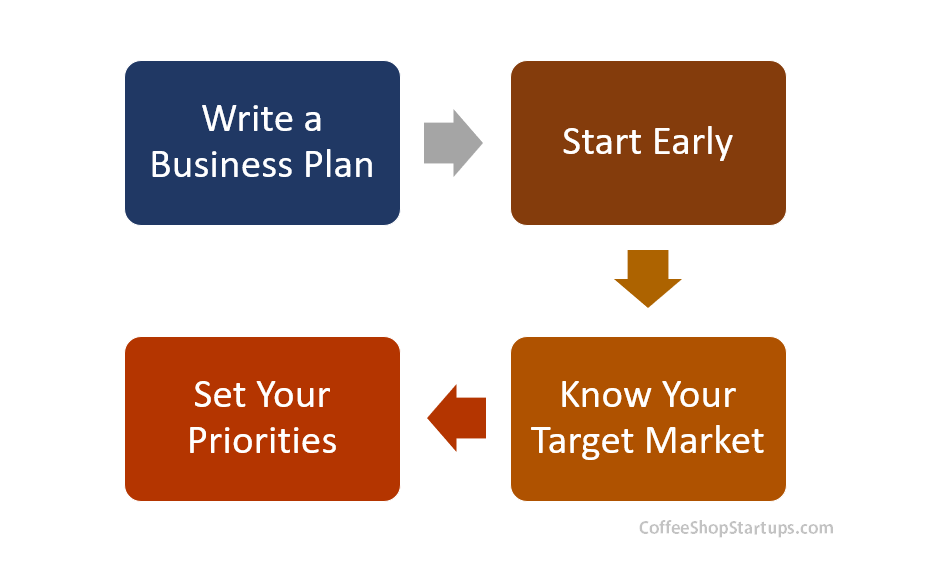
3. Register Your European Coffee Business
What types of business structures are common in the EU?
In Europe, a real business starts when you register it with your local government. Establishing your coffee business structure requires some paperwork that needs to be submitted to the local Commercial Register, for example.
In most European countries today, all documentation can be submitted online. The list of documents will vary depending on what business structure you choose to go with.
The most typical business structures in the European Union to start a coffee shop are:
Sole proprietorship
- Germany: Einzelunternehmen
- France: Entreprise individuelle – EI
- UK: Sole proprietorship
- Spain: Autónomo
- Poland: Jednoosobowa działalność gospodarcza
Partnership
- Germany: Gesellschaft bürgerlichen Rechts – GbR
- France: Société en nom collectif – SNC
- UK: General or any other type of partnership
- Spain: Sociedad Colectiva – S.C.
- Poland: spółka akcyjna – S.A.
Limited liability company
- Germany: Gesellschaft mit beschränkter Haftung – GmbH, or Unternehmergesellschaft – UG
- France: Société à responsabilité limitée – SàRL
- UK: Public Limited Company – PLC
- Spain: Sociedad Limitada – S.L.
- Poland: spółka z ograniczoną odpowiedzialnością – Sp. z o.o.
Depending on the size of your operation, you may choose any of the abovementioned options.
If you plan to work independently, then registering as a sole proprietor may be an excellent option to start. The significant advantage is that you don't need a minimum capital. It may be essential to consult with a local accountant, attorney, or solicitor to make sure you're setting things up properly.
Opening a Coffee Business Sole Proprietor & LLC
As a sole proprietor, you are personally liable if something goes wrong with your business. This is the same regardless of whether you open a coffee shop in the United States or in the European Union.
A partnership is another legal structure established with one or more partners with unlimited liability. The most typical way to register your European coffee shop is to establish a limited liability company. The most significant advantage is that you are not liable for your private assets – only for your company's assets.
Minimal Capital in the EU Need to Start a Business
Thus, you are required to have a minimum capital to register your company. For example, to establish a GmbH in Germany, you must have a minimum of €25,000 to use later to cover your coffee shop costs (for a UG, your minimum capital should be at least €1).
Take, for example, SàRL in France. There the minimum capital is €12,000, in the UK – £50,000, in Spain – €3,012, in Poland – PLN 5,000 (approx. €1,250).
If you decide to proceed with a limited liability company, here are the steps to start a coffee shop in Europe:
1. Draw up the articles of association and company's memorandum, prepare the shareholder's list and other founding documents – all of these have to be notarized
2. Check if your business name is available and register it
3. Open your business bank account
4. Deposit your initial capital
5. File your documents for registration in a Commercial Register
6. Get your business insurance
7. Get your tax ID and a trade license from the tax office
8. Obtain all necessary licenses (public health, fire protection licenses)
If you feel like you get overwhelmed with the paperwork, don't hesitate to consult your local chambers of commerce. There are plenty of law firms in the EU that help aspiring coffee shop owners start their businesses for a reasonable price.
Other Coffee Shop Business Articles:
| Coffee Shop Ideas & Concepts | Coffee Shop Budget and Planning |
|---|---|
| 50 Coffee Shop Ideas & Concepts | 7 Ways to Open a Coffee Shop with No Money |
| Low-Cost Coffee Shop Ideas | Open a Coffee Shop Bookstore |
| How to Open a Drive-Thru Coffee Stand | How Much do Coffee Shop Owners Make? |
4. Find the Right Coffee Shop Location in Europe
Finding the perfect location to open a coffee business in any country is challenging. There are many factors when choosing the best place to open your coffee shop at a particular spot.
It is not an overstatement to argue that choosing the right location to start your coffee shop in Europe will be among the most important decisions you make in your business planning.
Your location heavily impacts your customer base, preferences, and ability to spend money, customer flows throughout the day, and potential competition.
Customers will interact with you differently whether you have a coffee kiosk, a coffee truck, a café, or a restaurant. That's why it's essential to have a clear coffee shop concept, understand and “count your customers” to determine your sales before signing a lease. Once you sign a coffee shop lease, you will be stuck with it for at least a year or more. So, do your research carefully.
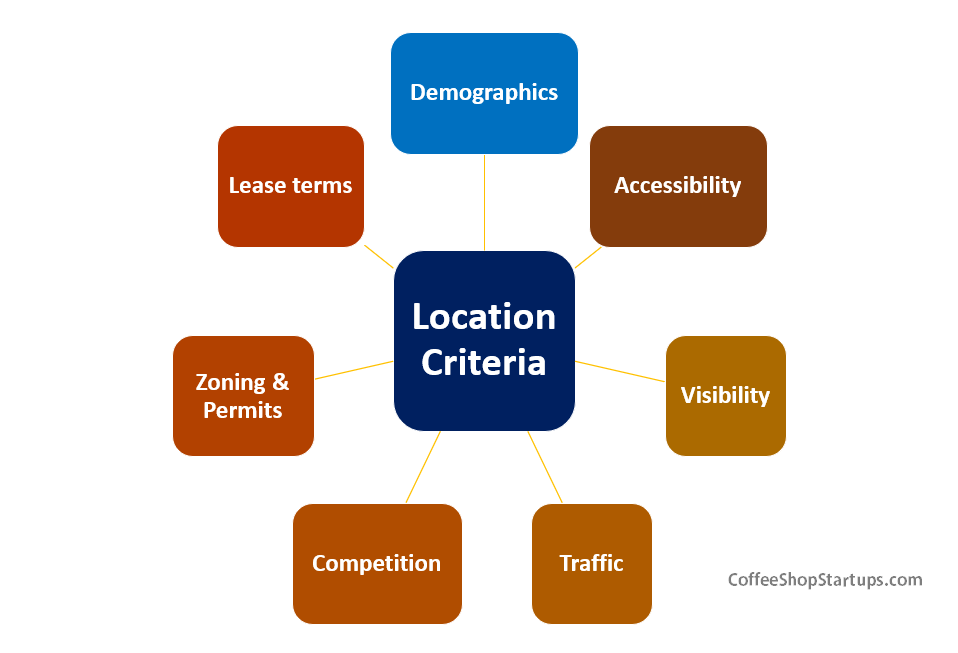
You want to choose a coffee location that:
- Is affordable
- It has excellent foot/car traffic and is accessible
- It is close to strategic places
- Supports your expected demographics
- Has moderate competition
While not necessary, it can be a good idea to sign a lease for a property that used to be a coffee shop or food service business. If this is the case, getting permits for this specific property may be more manageable. However, if the property is zoned for commercial use, you can still obtain the necessary permits to build your coffee shop space and signage.
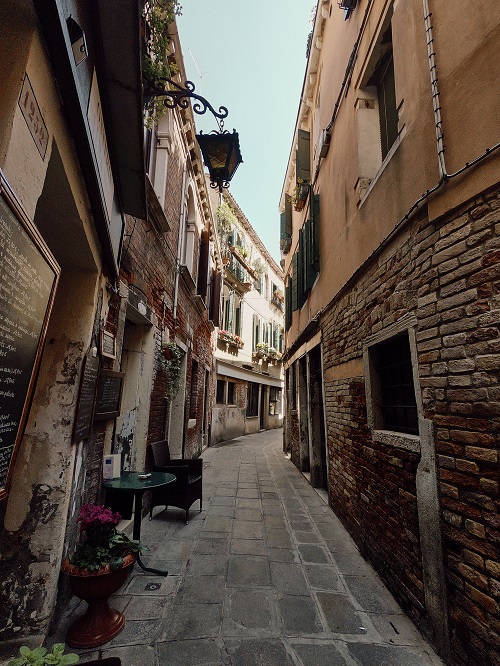 Preferably, you will want to find a commercial space with previously installed gas, electricity, and plumbing systems. This will significantly reduce your coffee shop startup costs.
Preferably, you will want to find a commercial space with previously installed gas, electricity, and plumbing systems. This will significantly reduce your coffee shop startup costs.
Your leased premises should be able to fit in with your coffee shop concept with all its equipment. For example, you don't need a huge space if you sell coffee and prepacked muffins. However, you can't fit your kitchen operation in a coffee kiosk or small cafe.
Your Coffee Shop Floor Plan
Once you get your space, you must develop a floor plan. Your coffee shop floor plan must be submitted to your local planning authority. When approved, you will get a planning permit. For example, in the UK, your coffee shop will be classified as A3 and needed for a material change of use in a property.
You may not need a building permit if the property housed a previous restaurant or coffee business. Check with your local building and planning authority, which can provide you with information in your language.
In some European countries, you need to obtain a health permit. In others, you may not. However, before starting a coffee shop in Europe, you must carefully study all necessary health and hygiene regulations and build your coffee shop accordingly.
5. Prepare For Your Health Inspection
You don't want to fail a health check by a state officer. Otherwise, your business will be fined or shut down. For example, in the UK, the Food Standards Agency requires a coffee shop to have adequate ventilation, lighting, drainage, toilets, food preparation areas, facilities for various purposes, food waste management, etc.
The same goes for fire safety at your coffee shop. You might want to carefully review the fire safety requirements for food businesses in your area. Make the necessary arrangements so the local fire authority can sign off on your establishment.
On Starting a Coffee Shop in the EU
6. Get Help with Accounting
When starting a coffee shop, keeping track of all your startup costs and ongoing fixed and variable costs is essential.
| Startup Costs | Fixed Costs | Variable Costs |
|---|---|---|
| Startup Costs Fixed Costs Variable Costs Coffee equipment Build-out and remodeling Furniture Permits and licenses Marketing Insurance Broker or lawyer fees (if you hire them) | Rent Insurance Interest rates Taxes | Taxes Salaries Inventory (coffee, milk, etc.) Marketing |
The goal of starting a coffee shop in Europe is to turn a profit, which means your revenue should exceed your costs.
Your monthly profit and loss statements will help you track all your profits and costs. Eventually, you want to reach your break-even point sooner than later and start making real money. If you feel overwhelmed with the numbers, you might consider hiring a bookkeeper or outsource your accounting to an accounting company.
If you decided to establish an LLC in Europe, you most likely would have to pay certain taxes. Tax rates may vary considerably in different countries.
The main EU taxes you will pay are:
| Country | Corporate Income Tax | VAT* |
|---|---|---|
| Germany France UK Spain Poland | 29,8% 28.4% 19% 25% 19% | 19% 20% 20% 21% 23% |
*Note that in Europe, the VAT is included in the price of goods sold.
7. Hire People You Trust
If you want to start a coffee shop business in Europe, you will probably hire other people to help you realize your dream. This might be baristas, chefs, managers, cleaners, accountants, etc.
You may want to employ yourself as a director also to be able to get a monthly salary. Since employees are better protected by law in Europe than in the United States, you must carefully study individual EU countries' hiring practices and labor laws where you plan to operate your coffee shop.
Minimum Wage Laws
Some EU countries have a minimum wage law. For example, Italy, Austria, Sweden, Denmark, Finland. Others, like Poland, Spain, Slovenia, Ireland, France, and Belgium, have a minimum wage.
Personal tax is proportional in Europe. It means the higher the wage, the more tax you'll pay. Typically, personal income tax, state health insurance, and old-age insurance will be withdrawn from the salary for all employees working under employment contracts.
The table below shows that the labor tax burden is relatively high on European workers.
| Country | Personal Income Tax | Overall Tax Burden (incl. income tax, health + old-age insurance) |
|---|---|---|
| Germany France UK Spain Poland | 47.5% 55.4% 45% 43.5% 32% | 49% 46.6% 30.8% 39.3% 34.8% |
Tax foundation
Again, this only applies if you start an LLC. If you decide to establish a partnership or work individually, some other tax rates may apply. Be sure to check with the country you plan to do business before you start planning.
![]()
Coffee Shop Startups in Europe
Other Factors To Consider in the EU
Other factors are important to consider when starting a coffee shop business in the EU – or any other region of the world.
Your coffee shop budget, the level of competition, startup costs, branding, vendors, as well as other governmental regulations will be important to consider when setting out to plan your coffee shop.
We will list other important factors:
- Level of competition
- Your coffee shop budget
- Your available capital
- Regulatory permits
- Your build-out
- Branding
- Developing your team
- Management & human resource issues
Related Questions:
What is the best country in Europe to Start a Coffee Shop?
Every country in Europe offers its benefits and advantages. Some countries consume more coffee than others. While in others, starting a coffee shop may be less expensive.
Yet other countries might be easier and have fewer regulations, while others might require more taxes. Ultimately, you must decide on a location that works for you, your coffee business concept, your family, and your target market. While things may be “easier” from one location to another, you must consider the effort and money it will cost to uproot your family and your lifestyle from your current country.
Are there still opportunities to start a coffee shop in Europe?
Yes! Europeans drink plenty of coffee. The demand is high, but so is the competition. Developing a strong coffee shop business plan and sound concept, securing your funding, and doing your research will help ensure your success. Also, niche coffee shop business concepts like drive-thru coffee stands may prove profitable.

Ready to Get Started?
Start Your Dream Coffee Shop Business
Starting a coffee shop is exciting, but it can also feel overwhelming. Where do you start? What steps should you take? How do you avoid costly mistakes? That’s where the Professional Coffee Shop Startups Kit comes in. It’s designed to give you a clear, practical roadmap to opening a successful coffee business—without wasting time or money on guesswork.
Inside, you'll find:
![]() Expert interviews with real coffee shop owners and business experts.
Expert interviews with real coffee shop owners and business experts.
![]() An On-Demand 37-lecture course covering everything from business planning to daily operations.
An On-Demand 37-lecture course covering everything from business planning to daily operations.
![]() Editable coffee shop business templates, financial documents, checklists, and planning tools to keep you on track.
Editable coffee shop business templates, financial documents, checklists, and planning tools to keep you on track.
![]() A step-by-step startup guide that walks you through concept development, permits, branding, and more.
A step-by-step startup guide that walks you through concept development, permits, branding, and more.
![]() Cost-saving strategies to help you launch your coffee business on a budget.
Cost-saving strategies to help you launch your coffee business on a budget.
Whether planning a small coffee cart or a full-scale café, this kit is built to help you start confidently. Join the thousands of successful coffee entrepreneurs who started with a dream and a great plan. Your journey to coffee shop greatness begins right here!
Comprehensive. Proven. Affordable.
The Professional Coffee Shop Startup Kit
(Instantly Delivered To You)
* The information on this page is for educational purposes only. We do not offer legal or investment advice.





